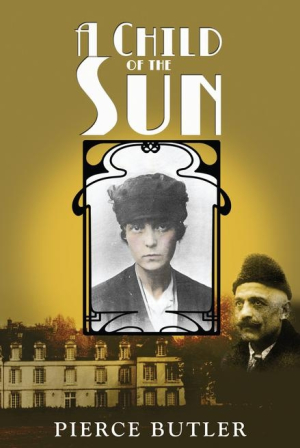
A Child of the Sun
The courage of a dying woman who still seeks her own spiritual truths highlights her humanity.
Based on the writer Katherine Mansfield’s short but intense residence at the Prieuré at Avon, which taught an esoteric spiritual discipline called “The Work,” A Child of the Sun recreates Mansfield’s journal entries and letters to relatives from the period.
Mansfield was in the late stages of tuberculosis when she left her husband, who considered her decision irrational, behind and entered the Prieuré to seek mastery of her own thoughts, feelings, and sensations. The conflict in this novelization revolves around her illness and her hope and faith that The Work would allow her to separate what is “permanent from the ephemeral.”
Her mentor Olgivanna, a dervish dancer at the Prieuré, tells Mansfield that practice will free her from identifying with her body, and she, desperately ill, believes it. In the exalted state she achieves through The Work, she thinks, “Disease, accident, death—or life: they do not concern you if you hold to the essential thing, which has become your happiness.” Although her death is an immutable and foreboding fact throughout the novel, it is her intense belief that she must practice The Work to be well that proves to be both heartbreaking and compelling.
Understanding regarding The Work is somewhat removed, and comes mostly as Katherine witnesses events in the community, as well as through her own internal journey of self-discovery. That lone journey complicates the novel’s seeming perception that she left her “beloved Jack” because of marital unhappiness and adds dimension to the plot. Katherine’s courage as a dying woman who still sought her own spiritual truths highlights her humanity and elicits additional compassion for her suffering and untimely death.
The novel explores themes of early twentieth-century New Age spirituality, using them as a means to address Katherine Mansfield’s chronic illness, her intense self-scrutiny, and her admirable struggle for self-awareness. Child of the Sun so evokes pointed questions from a healthy readership about their own mortality.
Reviewed by
Kai White
Disclosure: This article is not an endorsement, but a review. The publisher of this book provided free copies of the book to have their book reviewed by a professional reviewer. No fee was paid by the publisher for this review. Foreword Reviews only recommends books that we love. Foreword Magazine, Inc. is disclosing this in accordance with the Federal Trade Commission’s 16 CFR, Part 255.
